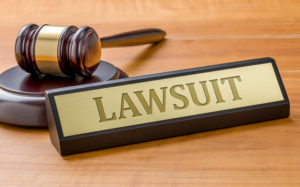Table of Contents
Beginning your journey to recovery after a motorcycle crash can be daunting. You might feel overwhelmed by the physical demands, financial implications, and legal procedures that lurk ahead. However, it’s crucial to know you’re not alone as thousands of motorcyclists face similar incidents every day, and there are professionals available to help you with your recovery.
A San Diego motorcycle accident lawyer can help you understand what you’re facing and how to pursue compensation when someone else caused your motorcycle crash.
Common Causes of Motorcycle Accidents
Motorcycle accidents can be caused by a variety of factors. Here’s an overview of some of the most common causes:
Driver Inexperience
Lack of experience is often a critical factor in many motorcycle crashes. As you would expect, new riders aren’t as familiar with the subtle nuances involved in controlling their bikes effectively — handling the throttle, maneuvering sharp corners, or reacting quickly to sudden obstacles. Due to this lack of practice and technical skill, inexperienced drivers are at significant risk for accidents.
Road Hazards
Unlike larger vehicles with four wheels for stability, motorcycles have only two and are much lighter; as a result, they’re more susceptible to road hazards like potholes and debris on roadways that can disrupt stability even when traveling at reasonable speeds. Small changes in surface conditions which may be imperceptible or insignificant to individuals driving cars and trucks may pose serious perils to motorcyclists.
Driving Under the Influence
Drinking alcohol or using drugs and operating a motorcycle drastically impairs a rider’s ability to operate their motorcycle safely. Judgment, coordination, motor control, and reaction times can all be significantly affected when driving under the influence of alcohol or drugs. This raises risks for riders and other road users too.
Speeding
Speeding continues to be one of the leading causes of motorcycle accidents. You may feel exhilarated when riding at high speeds, but it reduces your ability to steer safely around corners or objects in the roadway, extends the distance necessary to stop your bike, and decreases both your and others’ reaction time after perceiving danger. More importantly, speeding also magnifies crash intensity resulting in more severe injuries or even death.
Weather Conditions
Adverse weather conditions, like rain, snow, or fog can considerably increase the risk of a motorcycle accident. Weather-related vision impairments make it more difficult for motorcyclists to see oncoming traffic, upcoming bends in the road, or potential obstacles. Slippery roads due to wet weather can cause tires to lose traction which increases the chance of skidding and accidents.
Additionally, extreme winds have significant impacts on motorcycles due to their smaller size and lighter weight compared with other vehicles present on the roadway.
Common Injuries Resulting From a Motorcycle Accident
Motorcycle accidents cause many types of injuries. In general, injuries resulting from a motorcycle accident are much more serious for the biker than for someone in a car. Some injuries that a motorcyclist may sustain could be superficial and may heal quickly, while others may be longer-lasting and might take time and effort to recover from. Some injuries may never heal completely and can require around-the-clock care for the rest of the patient’s life.
Those injured in a motorcycle accident may suffer the following injuries:
Head and Traumatic Brain Injuries
One of the most serious injuries sustained from motorcycle accidents is a head or traumatic brain injury. This can range from mild concussions to severe damage, including memory loss, intellectual impairment, or personality changes. Always use a helmet when riding – it’s not just law in many places, but also crucial for your safety.
Spinal Cord Injuries
Spinal cord injuries due to motorcycle accidents have life-changing consequences as they may result in partial or complete paralysis. Such an injury could limit mobility permanently, affecting careers and activities that you once enjoyed.
Cuts and Bruises
These are some of the most frequent injuries resulting from motorcycle crashes, often caused by hitting hard surfaces or sharp objects during an accident. Although minor cuts heal easily with appropriate care, deeper lacerations may require stitches or even surgical intervention.
Eye Injuries
Motorcycle riders are exposed to a variety of debris while on the road — dust, dirt, tiny pebbles flung up by other vehicles — that can seriously damage your eyes. Riding without suitable eye protection means you expose yourself to potential scratches and infections which can lead to vision loss and traumatic injury.
Road Rash and Other Abrasions
When you fall from a motorcycle, you’re likely to scrape against the pavement or gravel. This friction removes layers of skin, resulting in “road rash.” Road rash is not always just an external wound; depending on the severity and extent of your injuries it can lead to infections and permanent nerve damage.
Burn Injuries
Motorcycle exhaust pipes heat up significantly when operating, posing risks for leg burns, particularly during accidents. Also, if a crash causes fuel leakage leading to a fire or explosion, it may result in severe burn injuries over larger regions of your body, affecting deeper tissues beneath your skin.
Post-Traumatic Stress Disorder
Post-traumatic stress disorder (PTSD) and psychological harm are also common after motorcycle accidents. When something triggers an emotional or psychological response, emotional injuries might not set in until long after the accident. Personality changes such as anxiety, depression, fear, changes in sleep patterns, or hyper-alertness may indicate psychological harm.
Navigating the aftermath of a motorcycle accident can be both physically and emotionally challenging. However, understanding the causes and potential injuries associated with such incidents is an essential step towards implementing preventative measures, ensuring your safety on the road, and preparing for possible recovery paths in such unfortunate circumstances.
Recovering Damages After a Motorcycle Accident
Recovering damages after a motorcycle accident involves seeking compensation for various losses that you may have suffered. The types of damages are generally classified into three broad categories: economic, non-economic, and punitive.
Economic Damages
Economic damages represent the quantifiable financial costs resulting from the accident. Economic damages can include medical expenses — such as hospital bills or prescription medications — you’ve incurred during recovery. This also covers income loss due to an inability to work or diminished earning capacity if your injuries prevent you from doing certain tasks in the future.
Non-Economic Damages
These include intangible losses that can’t be objectively quantified monetarily but still result in personal hardship. These most often include pain and suffering, emotional distress, loss of consortium, and a loss of enjoyment of life.
Punitive Damages
In some cases, you may be awarded punitive damages. These are not primarily designed to compensate for a loss; rather, they serve as a form of punishment for the offending party’s malicious or egregiously negligent actions.
The goal of punitive damages is both to punish the offender and deter similar behavior in the future. However, these types of awards are relatively rare and typically reserved only where conduct was exceptionally reckless or intentional.
What Evidence Will Be Needed To Prove Your Claim?
Collecting the right evidence after a motorcycle accident can make a considerable difference in recovering damages and validating your claims. The following are key types of evidence you may need:
Police Report
A copy of the police report documents details about your accident including date, time, location, and any citations issued to involved parties.
Medical Records
Comprehensive medical records are fundamental to your case. They provide a detailed account of the injuries you’ve sustained in the motorcycle accident, any related procedures and treatment plans decided by healthcare professionals, as well as your progress toward recovery.
Photographs
Photos of the accident scene, damage to your motorcycle, and visible injuries provide visual evidence that can support your case. Pictures can convey details that you might not be able to fully explain otherwise.
Surveillance Footage
If available from street cameras, nearby businesses, dash cam, or even house doorbell cameras, surveillance footage can provide an objective perspective on how the events transpired leading up to the accident. Such visual proof sets aside conjecture and speculation, offering clear evidence of who was really at fault during a collision.
Witness Statements
As neutral observers, the role of eyewitnesses in a motorcycle accident case cannot be overstated. Their testimonies can validate your account of what happened during the incident and confirm details that may otherwise have been disputed or overlooked.
Perhaps a bystander noticed traffic lights changing colors or observed reckless driving by another vehicle moments before you were hit — they could highlight this information to reinforce your narrative.
Documentation of Lost Wages
This proof includes pay stubs and communication with your employer to verify that you missed work because of the accident. It serves as evidence for claims related to lost incomes or reduced earning capacity.
Pain Journal
You might also want to keep a pain journal where you can detail daily symptoms, treatments, and emotional challenges due to the accident. This record could enhance your claim for non-economic damages.
Expert Testimony
Engaging third-party professionals or expert witnesses for your motorcycle accident case can significantly strengthen the validity of your claim. They can provide independent and objective opinions that clarify complex issues and validate facts that might otherwise be difficult to prove. Two common examples include:
Medical Expert
A medical professional has specialized in-depth knowledge about different injuries, diagnoses, and treatments involved with motorcycle accidents. They not only authenticate the severity of your injury but also explain how the accident caused this injury and substantiate how it’s likely to affect you in the future.
Accident Reconstruction Experts
Accident reconstruction experts are often engineers or technical specialists who can recreate the events of the accident using advanced software programs. They use data from the crash site like vehicle damage, skid marks, and location of debris to construct a scientific analysis detailing how an accident occurred.
Statute of Limitations for Motorcycle Accidents
A lawsuit can’t be filed indefinitely after an accident — the law gives a certain time limit, also known as the statute of limitations, for you to initiate your legal claim. In California, the typical statute of limitation period for filing a personal injury case following a motorcycle accident is two years from the date the incident occurred.
It’s critical to understand that exceptions may exist; sometimes this timeline may be shortened or extended based on specific circumstances around your case. This is particularly true if the defendant is a government entity or the injured party was a minor at the time.
Always make sure you speak with a personal injury lawyer as soon as possible so you don’t miss out on your chance for compensation.
Contact Gomez Trial Attorneys for Help With Your Motorcycle Accident Claim
Overcoming the aftermath of a motorcycle accident can be challenging, but you don’t have to navigate it alone — a compassionate and competent legal companion by your side can make a world of difference.
For expert guidance, reach out to Gomez Trial Attorneys today. Our team has extensive experience in handling motorcycle accident claims, and we’re committed to ensuring that justice is served for all our clients. We will fight tirelessly on your behalf, helping you obtain the maximum compensation for damages and keeping at bay any unnecessary stress. Contact us today for a free consultation with a motorcycle accident lawyer by calling 619-237-3490 or by contacting us online.
FAQs
How do you mentally recover from a motorcycle accident?
After enduring a motorcycle accident, it’s quite normal to experience psychological distress. Here are some steps that could help you recover mentally:
Therapy and Counseling: Seek out a therapist or mental health counselor who is experienced in helping people deal with traumatic events including motorcycle accidents.
Meditation and Mindfulness: Techniques such as deep breathing exercises, yoga, or mindfulness can assist in calming your mind and alleviating stress.
Support Groups: Joining support groups allows you to interact with other individuals who’ve had experiences similar to yours which helps assure you that you’re not alone.
Remember, everyone handles situations differently so it might take some time before things get back to ‘normal’. Don’t rush yourself. Recovery takes time.
How long does it take for road rash to heal?
The healing period of road rash largely depends on the severity of the injury. Mild cases may heal within two weeks with proper care and hygiene. However, severe instances where deeper layers of skin have been affected could take several weeks or even months to completely heal. Consistent cleaning and dressing changes with a healthcare professional are key components for successful recovery from such wounds.







